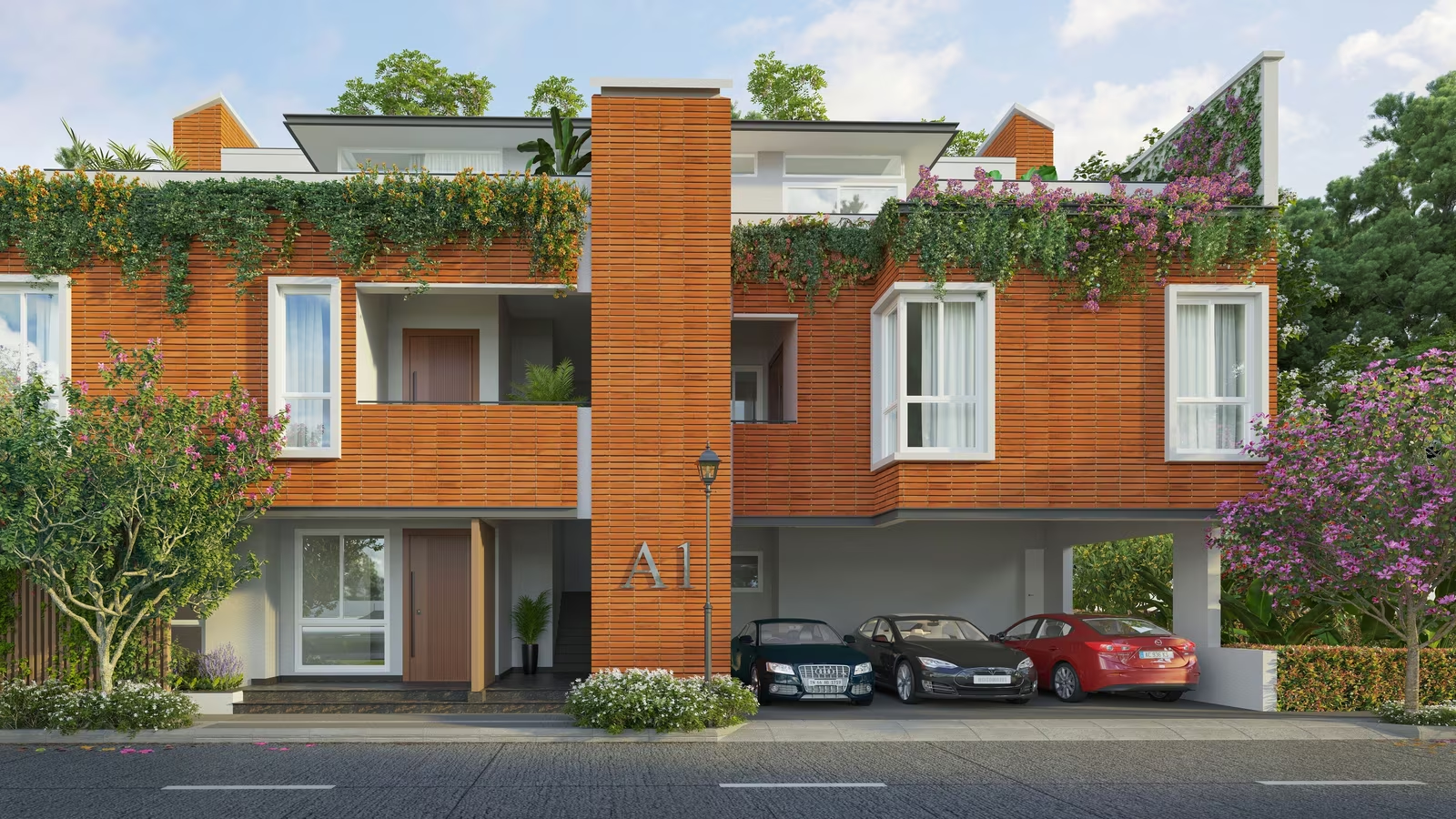News
Model Tenancy Act: India gears up to implement rental housing policy




Anuj Puri
Chairman – ANAROCK Property Consultants
The rental market in India has long been fragmented and underdeveloped, invariably creating pressure on the overall real estate market. The leasing and renting of residential properties still fall under the purview of the Rent Control Act, with each state having its own version. With lack of proper legislation, tenant–landlord conflicts are quite common, leading to lengthy litigation.
Interestingly, despite acute housing shortage, there are over 1.10 lakh homes lying vacant in the country’s urban areas. And the absence of a sound rental policy is the key reason for this. Therefore, the immediate implementation of a sound rental policy is a must.
The Model Tenancy Act, 2020 aims to bridge the trust deficit between tenants and landlords by clearly delineating their obligations. To ensure speedy redressal of disputes, it also proposes to establish Rent Court and Rent Tribunal to hear appeals for matters connected to rental housing.
Ultimately, the creation of rental housing stock will help students, working professionals and the migrant population (especially in COVID-19-like exigencies) to find accommodation. Once implemented in all fairness, it will benefit one and all.
Why India Needs Rental Legislation
Paradoxically, even while there is acute housing shortage in India, the vacancy levels of homes have been on the rise. According to the National Census, vacant houses comprised around 12% of the total share of the urban housing stock. These vacant homes in urban areas could clearly feed the rental market across the country, but various factors have created roadblocks. These include:
- Lack of a sound rental policy
- Low rental yield accrued from residential properties – averaging not more than 3% in major cities
- Lack of demand in far-flung areas due to connectivity and physical infrastructure issues.
- COVID-19 saw lakhs of migrant workers return to their hometowns. The key reason for their return was the non-availability of affordable accommodation in cities amidst almost zero income.


Atmanirbhar Bharat – Rental Housing for Migrants
Acknowledging the plight and mass exodus of countless workers from cities during the COVID-19-infused lockdown, the FM unveiled a new scheme for the urban poor under the PMAY – Affordable Rental Housing Complexes (ARHC).
Due to ample employment opportunities in major cities majority workforce moved to the cities in the pre-Covid-19 era. However, the absence of affordable rental housing here led to mass exodus of these migrants who had zero income during the lockdown. Thus, the government had to shift gear of their Housing for All initiative and include affordable rental housing as part of it.
Under the scheme, the government-funded housing in urban cities are being converted into ARHC via the public-private partnership (PPP) model and government housing complexes lying vacant will be converted and rented out to migrants at concessional rates.
At the onset, the government plans to use approx. one lakh unused housing units built under the JNNURM and the Rajiv Awas Yojana (RAY) – previous government’s urban upgrade and housing programmes – to provide rental housing. The monthly rentals for homes under ARHCs are likely to be fixed between INR 1,000 to INR 3,000.
Besides addressing the woes of urban migrants – a person or group of people/ families of EWS/ LIG categories – it will also aid in fulfilling the government’s ambitious initiative of Housing for All by 2022.
ARHC will be implemented through two models:
- By utilising existing Government funded vacant houses by converting them into ARHCs under Public Private Partnership.
- Construction, Operation and Maintenance of ARHCs by Private/ Public Entities on their own vacant land.
Individual or groups may book their requirement via government website (i.e. www.arhc.mohua.gov.in). Concessionaire or an entity may also tie up with other entities or organizations and also get migrant labours or urban poor through aggregators. The scheme is thus an attempt to bridge the shortfall of dwelling units across the country. Moreover, it will add another asset class to be considered by developers.
Salient Features of the Model Tenancy Act, 2020
The Government has proposed guidelines that enforce rental contracts and protect the rights of landlords as well as tenants. As per the draft Model Tenancy Act, 2020, the government has laid down various proposals. Some notable features include:
- After commencement of the Act, all premises (residential or commercial) shall be rented only after a written agreement on mutually agreed terms.
- The Act will provide for a fast-track quasi-judicial mechanism for adjudication of disputes.
- Security deposit has been capped to a maximum of two months’ rent in case of residential property, and in the case of non-residential property it shall be as per the terms of tenancy agreement subject to a maximum of six months’ rent.
- Security deposit to be refunded by the landlord at the time of taking over vacant possession of the premises, after making due deductions, if any.
- The landlord is entitled to get a compensation of double of the monthly rent for two months and four times of the monthly rent thereafter if a tenant does not vacate the premises after tenancy has been terminated by order, notice or as per agreement.
- If the term of the tenancy ends at the time when locality (where rented premises is situated) experiences any force majeure event, the landlord shall allow the tenant to continue possession of premises for one month from the cessation of such force majeure event on the same terms of prevailing tenancy agreement.
- The tenant cannot sublet a part of or the whole property or carry out any structural change without execution of supplementary agreement between landlord and tenant.
- The proposed rent authority must be informed about the rental agreement within two months of its signing.
- An officer of the rank of deputy collector or higher will act as rent authority to adjudicate any issue arising out of a rental disagreement.
- Additional Collector or Additional District Magistrate or an officer of equivalent rank shall be the Rent Court for the purposes of this Act, within his jurisdiction. District Judge or Additional District Judge to be appointed as Rent Tribunal in each district.
Not Without Hitches – But Still the Right Step
While proposals of the MTA have been widely welcomed, their implementation could not be so simple. The Act is not binding on the states as land and urban development remain state subjects. It is still a matter of choice for states and Union Territories to repeal or amend their existing Acts. Like in the case with RERA, the fear is that states may choose not to follow guidelines, diluting the essence of the Model Act.
Another pain point could be the cap on the security deposit which is not likely to find favour with many landlords. In cities like Bangalore, the norm is a ten-month security deposit as a two-month deposit is unlikely to cover any damage to the property or a default in rent payment by the tenant.
Despite these challenges, The Model Tenancy Act must be lauded and is a step in the right direction. It provides a clear roadmap for states to follow and tweak according to their local conditions and market. It remains to be seen to what extent the states will toe the central government’s line. A fair and balanced tenancy law protecting the rights of all parties will go a long way in formalising and stabilising the rental market. If enforced by states in letter and spirit, it could revive the fortunes of not just the rental market but the housing sector at large.
-



 News4 weeks ago
News4 weeks agoKW Delhi 6 Mall Onboards New Brands
-



 News4 weeks ago
News4 weeks agoManasum Senior Living Launches IKIGAI GOA, A Senior Living Community in North Goa, in collaboration with Prescon Homes
-



 News3 weeks ago
News3 weeks agoGodrej Properties Sells Rs 3k cr+ Homes of Godrej Zenith, Gurugram, within 3 days
-



 News4 weeks ago
News4 weeks agoCommercial Realty Gets Tech Savvy: Fast Construction, Enhanced Convenience
-



 News3 weeks ago
News3 weeks agoRBI’s Status Quo on Key Policy Rates to Help Maintain the Real Estate Growth Momentum, Say Industry Stalwarts
-



 News2 weeks ago
News2 weeks agoOlive Announces Dhruv Kalro as Co-Founder
-



 News1 week ago
News1 week agoNoida’s High-Rise Societies Face Multiple Challenges Despite Rapid Urban Growth
-



 News3 weeks ago
News3 weeks agoGodrej Properties Sells 5000+ Homes of Rs 9.5 cr in Q4FY24, Bookings up 84% YoY




























